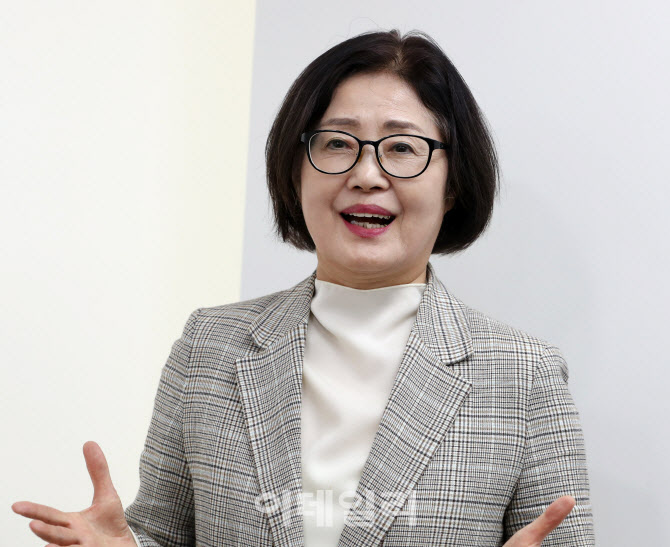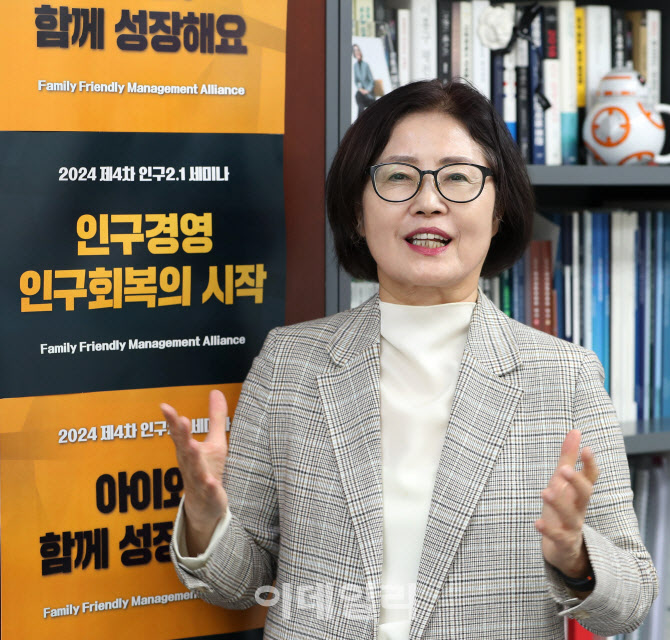|
In an interview with Edaily, In-sil Lee, Director of Korea Future Population Research Institute, argued that “selection and concentration” on regional hub cities is essential to prevent overconcentration in the capital and the extinction of local areas. She will moderate Session 5 at upcoming Edaily-PERI Special Symposium on June 19 at the Shilla Hotel in Seoul, to discuss differentiated regional population policies.
“Hub Cities Enable ‘Economies of Scale’... Must Ensure Jobs, Housing, and Leisure”
Lee emphasizes, “Economies of scale and scope are only possible when people gather and live together, allowing for efficient hospital construction, school development, and infrastructure expansion. Given limited resources, she advocates for focusing infrastructure investment on key regional hubs.”
She also emphasized the importance of creating jobs, housing, and leisure to attract young people to these hubs. As an example of successful cultural infrastructure, she cited Yeosu, which, with corporate support, has established a complex cultural and arts space that hosts renowned artists like Seong-jin Cho and Yun-chan Lim, earning widespread praise.
However, Lee noted that smaller towns surrounding hubs will inevitably shrink. She advised that, until then, efforts should focus on ensuring that current residents do not experience discomfort.
“In some counties or towns, local government spending exceeds the income generated by residents, meaning administrative costs are wasted. Such small towns should be gradually phased out,” she said. “Funds that would be spent on unnecessary new houses or government buildings should be used to maintain essential facilities like post offices, schools, and clinics, ensuring a comfortable life for remaining residents. Large hospitals and similar facilities can be concentrated in hub cities.”
Lee also stressed the importance of political consensus. “Deciding which cities will serve as hubs requires political consensus, as it is a sensitive and critical issue,” she said. “With the presidential and local elections approaching, now is the perfect time for a grand compromise. Each hub should be differentiated by major industries, such as specializing in AI or utilizing ports. While there may be local opposition, the central government should set the overall framework, and details can be worked out within the autonomy of regional governments.” She also urged that local government leaders be granted both responsibility and authority in this process.
|
Experts described past regional policies as clear “failures.” Despite various policies aimed at solving regional extinction, concentration in the capital has only intensified. She emphasized the need for a government body to serve as a control tower.
“Previous administrations have operated organizations like the National Balanced Development Committee and the Local Era Committee, but the problem of regional extinction has only worsened,” Lee said. “Some areas have seen population increases, but this has only been due to redistribution among local governments, not real national progress.” She pointed out that population policies are currently scattered across multiple ministries and even within local governments, with budgets coming from different sources. “This is why past committees have been ineffective, local governments still have to cater to whichever ministry controls the funding,” she said. “We need to quickly establish a Population Strategy Planning Ministry that allows to coordinate all population-related policies and execute budgets. This should be included as a campaign pledge and made a national agenda item.”
By 2030, the first wave of baby boomers (born 1955~1963) will reach age 75, sharply increasing demand for healthcare and nursing, while the second wave (born 1964~1974) will begin to retire. “We have only about five years left as a golden window,” Lee warned. “As the population declines, polarization will intensify, potentially becoming a flashpoint for social conflict. We must act quickly to minimize negative side effects.”
About In-sil Lee:
Lee In-sil is Director of Korea Future Population Research Institute. She holds bachelor’s degrees in geology and economics from Yonsei University and a Ph.D. in economics from the University of Minnesota. She was the founding director of the National Assembly Budget Office’s Economic Analysis Division and served as the first female and first civilian Commissioner of Statistics Korea.






!["청년 ''도시 선호'' 수용해야…빈집 철거해 도시 밀도↑"[ESF 2025]](https://image.edaily.co.kr/images/Photo/files/NP/S/2025/06/PS25061901218t.jpg)


![외국행 꿈에 엄마가 걸림돌…친모 살해 뒤 옆에서 잠든 아들[그해 오늘]](https://image.edaily.co.kr/images/vision/files/NP/S/2026/02/PS26021200006t.jpg)

